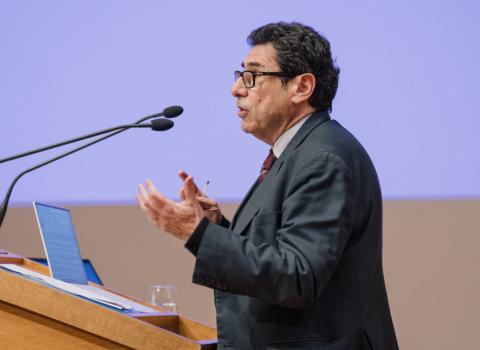The cover article in Materials Advances is about a study done by professor Carlo S. Casari and his team at the NanoLab (Micro and Nanostructured Materials Laboratory) of the Department of Energy.
Their research deals with the instability problem in linear chains (or atomic wires) of carbon: in nature, they tend to degrade, becoming amorphous carbon, for example. This limited stability prevents the use of the applied spin-offs these one-dimensional nanostructures could have in the materials engineering field.
"Finding new methodologies to stabilise these chains in a solid material allows us to start assessing still-unexplored potential applications", explains professor Casari.
The Polytechnic researchers implemented a new technique to synthesise atomic carbon wires directly in the liquid polymer solution, instead of an organic solvent: a laser strikes a graphite target; the carbon atoms that form aggregate to form linear chains; the polymer solution is solidified to form thin layers that are easily manipulated. This produces a nanocomposite in which the carbon chains fully embedded into the polymer matrix have significantly more stability than the same chains when not embedded.
The study is available on-line: https://doi.org/10.1039/D0MA00545B
This research falls within the scope of the ERC EspLORE project (grant no. 724610), which seeks to develop innovative materials by using the potential of atomic carbon wires and exploring their possible applications for advanced technologies in the energy field. https://www.esplore.polimi.it
This article was first published by Politecnico di Milano.





 A unique international forum for public research organisations and companies to connect their external engagement with strategic interests around their R&D system.
A unique international forum for public research organisations and companies to connect their external engagement with strategic interests around their R&D system.